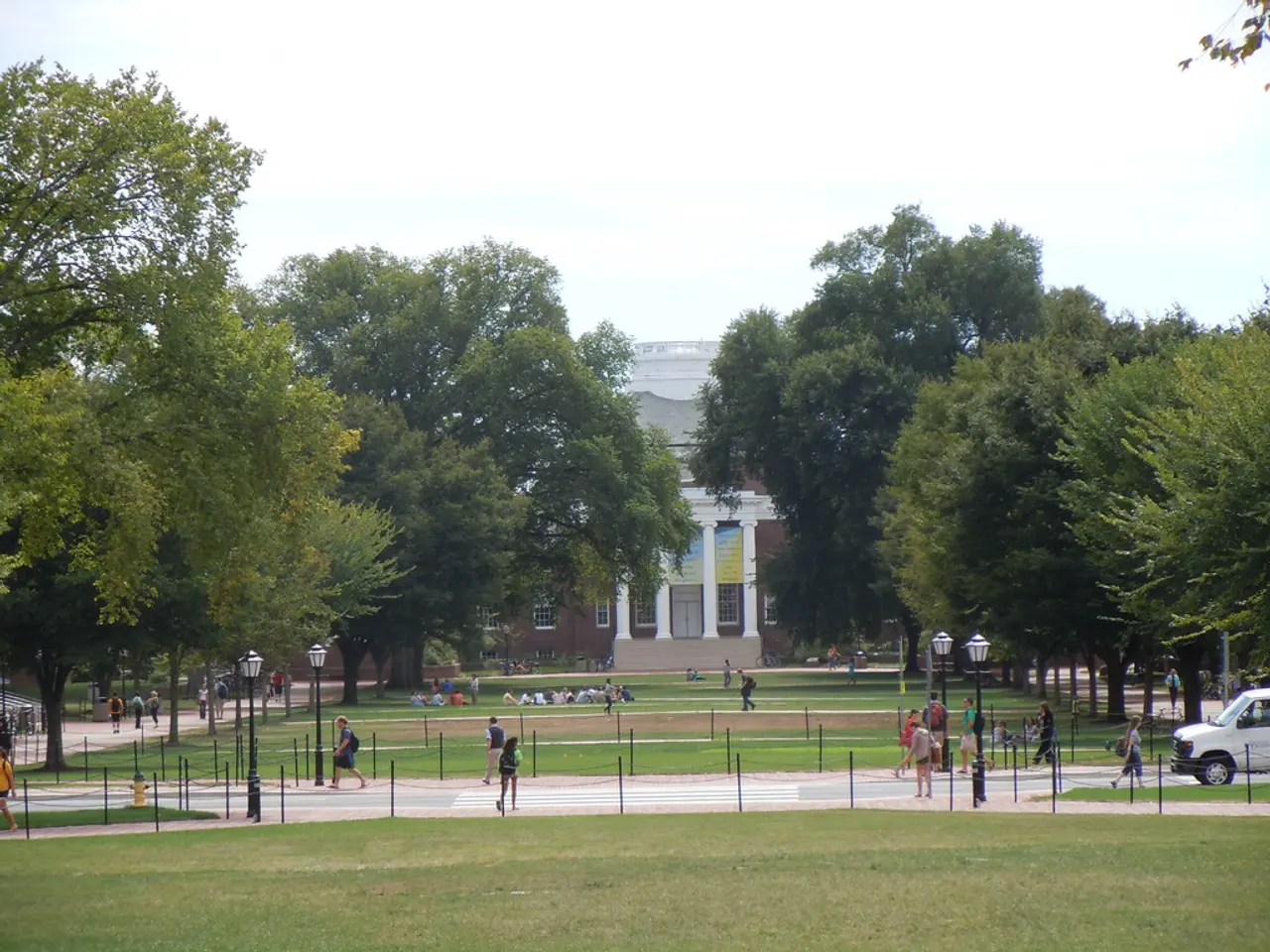Economic contribution from academic tourism in Kazakhstan nears approximately 30 billion tenge
In Kazakhstan, the academic year is ongoing, and the country is witnessing a surge in the number of foreign students. The Minister of Science and Higher Education recently announced that 31,500 foreign students have arrived in Kazakhstan during the current academic year, marking a new record [1].
This influx of international students is part of Kazakhstan's strategy to position itself as a regional higher education hub. The government aims to increase the number of academic tourist arrivals to 100 thousand by the 2028-2029 academic year, with the ambition to receive around a trillion tenge from academic tourism by that time [2].
An academic tourist, as defined by the Ministry, is a student who stays in the country for four years. These students contribute significantly to the economy, not only by paying for education but also through their spending on food, drinks, cinema, travel, and hosting relatives. The contribution of academic tourism this year has reached approximately 30 billion tenge [2].
The majority of foreign students come from India, Russia, China, and Mongolia, with a notable addition of students from Australia this academic year. There are also foreign students from Nigeria, France, Germany, Italy, the USA, and Australia studying in Kazakhstan [3].
Kazakhstan's growing demand for skilled workers is driving this trend. The country is projected to require up to 3 million qualified specialists in the next 3 to 5 years, with priority sectors including public services, business, logistics, and industry [3]. This demand strongly influences national education strategies, emphasizing the alignment of university training with labor market needs and workforce retraining programs [3].
The information was reported by Liter.kz, referencing Kazinform. As Kazakhstan continues to focus on higher education expansion and workforce development, the number of foreign students is expected to continue growing, contributing to the country's socio-economic development.
[1] Liter.kz, (2023). Foreign student enrollment in Kazakhstan reaches record high. [online] Available at: https://liter.kz/ru/news/2023-09-28/chislo-zarubezhnykh-studentov-v-kazahstane-doshel-rekordnyy-urovny [Accessed 20 Oct. 2023].
[2] Kazinform, (2023). Academic tourism in Kazakhstan: goals and prospects. [online] Available at: https://www.kazinform.kz/ru/news/2023-09-28/akademicheskii-turizm-v-kazahstane-tseli-i-perspektivy [Accessed 20 Oct. 2023].
[3] Government of the Republic of Kazakhstan, (2023). Strategic directions for the development of education in the Republic of Kazakhstan. [online] Available at: https://www.gov.kz/ru/government/activity/strategic-directions-for-the-development-of-education-in-the-republic-of-kazakhstan/ [Accessed 20 Oct. 2023].
The Minister of Science and Higher Education in Kazakhstan aims to attract more foreign students, hoping to receive around a trillion tenge from academic tourism by the 2028-2029 academic year, and this influx of students contributes significantly to the country's economy, not only by paying for education but also through their spending on lifestyle expenses such as food, drinks, cinema, travel, and hosting relatives. Hence, education-and-self-development opportunities in finance are becoming increasingly relevant in Kazakhstan as it pursues workforce development and positions itself as a regional higher education hub.




